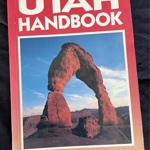FREE: All Of The Books of Enoch

A member of Listia gave this away for free!
Do you want FREE stuff like this?
Listia is 100% Free to use
Over 100,000 items are FREE on Listia
Declutter your home & save money

"Listia is like EBay, except everything is free" - Los Angeles Times

"An Awesome Way To Give And Get Free Stuff" - Michael Arrington, TechCrunch
This Stuff is Free Too:

FREE

FREE

FREE

FREE

FREE
The listing, All Of The Books of Enoch has ended.
The Book of Enoch (also 1 Enoch[1]) is an ancient Jewish religious work, ascribed toEnoch, the great-grandfather of Noah.
Western scholars currently assert that its older sections (mainly in the Book of the
Watchers) date from about 300 BC and the latest part (Book of Parables) probably was
composed at the end of the 1st century BC.[2] However, Ethiopian scholars generally
hold that Ge'ez is the language of the original from which the Greek and Aramaic copies
were made, pointing out that it is the only language in which the complete text has yet
been found[3].
It is wholly extant only in the Ge'ez language, with Aramaic fragments from the Dead
Sea Scrolls and a few Greek and Latin fragments. There is no consensus among
Western scholars about the original language: some propose Aramaic, others Hebrew,
while the probable thesis according to E. Isaac is that 1 Enoch, as Daniel, was composed
partially in Aramaic and partially in Hebrew[4]:6.
A short section of 1 Enoch (1En1:9) is quoted in the New Testament (Letter of Jude
1:14-15), and there apparently attributed to "Enoch the Seventh from Adam" (1En60:8).
The first part of Book of Enoch describes the
fall of the Watchers, the angels who fathered the Nephilim. The remainder of the book
describes Enoch's visits to Heaven in the form of travels, visions and dreams, and his
revelations.
The book consists of five quite distinct major sections
The Book of the Watchers (1 Enoch 1 – 36)
The Book of Parables of Enoch (1 Enoch 37 – 71) (Also called the Similitudes of
Enoch)
The Astronomical Book (1 Enoch 72 – 82) (Also called the Book of the Heavenly
Luminaries or Book of Luminaries. )
The Book of Dream Visions (1 Enoch 83 – 90) (Also called the Book of Dreams)
The Epistle of Enoch (1 Enoch 91 – 108)
The shared view[6] is that these five sections were originally independent works (with
different dates of composition), themselves a product of much editorial arrangement,
All Of The Books of Enoch is in the Books | Nonfiction Books category

